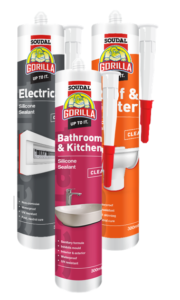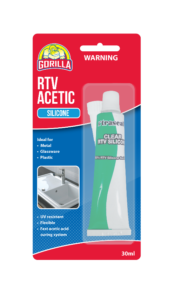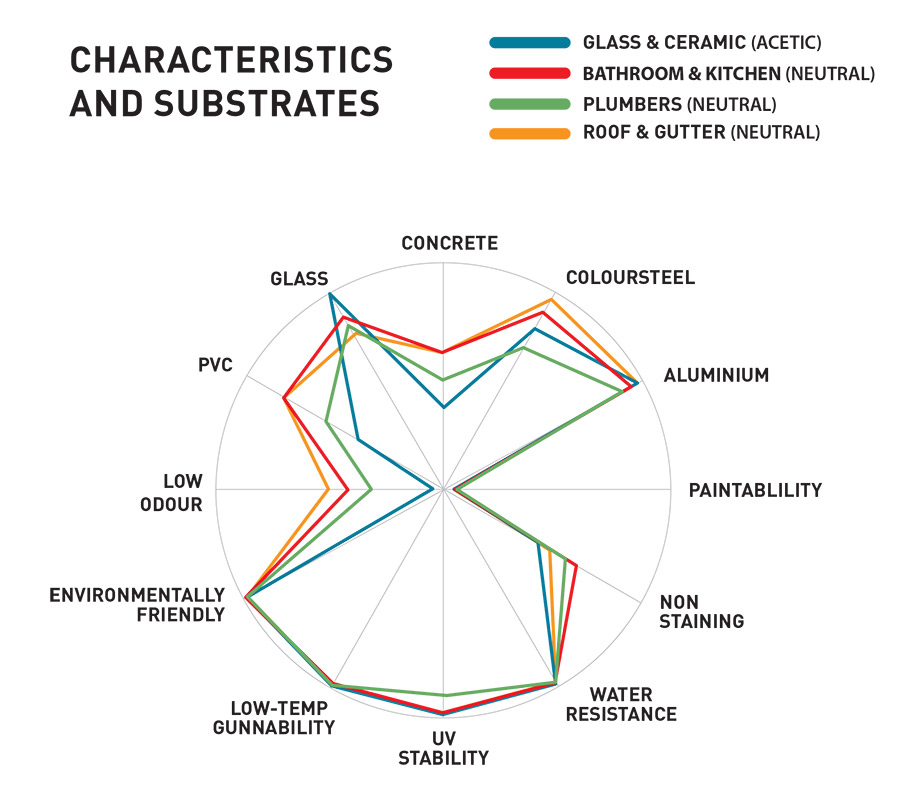
SELECTING THE RIGHT SILICONE – NEUTRAL CURE
Neutral cure silicones are used in many different ways and on many different tasks.
Internally, such as with Bathroom & Kitchen silicone products for sealing around vanities, showers and sinks.
Externally such as with Plumbers and Roof & Gutter silicone offerings to seal windows to frames, connections in guttering and downpipes etc. These silicones are designed to provide a water-resistant seal that maintains a strong hold against harsh weather conditions.
Neutral cure silicones also come in general purpose and sanitary formulations. Sanitary silicones have mould inhibitors included to ensure wet areas remain mould and grime free.
Some Gorilla Silicones have been tested and confirmed to be safe for use in the food and pharmaceutical industries, for both close and proximate contact. The approval agencies for this are AsureQuality and Ministry of Primary Industries.
For the approved silicone lists please refer to the MPI and AsureQuality documentation.

SELECTING THE RIGHT SILICONE – ACETIC CURE
Neutral cure silicones are used in many different ways and on many different tasks.
Acetic cure silicones are used for more specific tasks where you require the silicones to actually bite or etch into the substrate surface. Perfect examples of this are when you are working with glass or tiles. In this case to ensure long term adherence on the “slippery surface” the silicone actually needs to “bite” into the substrate.
While great for those specific tasks acetic cured silicones are a slightly older technology, they have a strong odour and they will damage surfaces outside of their specific purpose – so be careful!

SELECTING THE RIGHT SILICONE – RTV CU
RTV (Room Temperature Vulcanisation) silicones form a rubber like finish, it cures immediately upon being exposed to air so it often difficult to work with as they are also thick.
Within the construction industry RTV silicones tend to now only be used in unique settings where their specific properties of resistance to thermal and mechanical stress are required.
WHAT SILICONES WOULD YOU USE WHERE?

